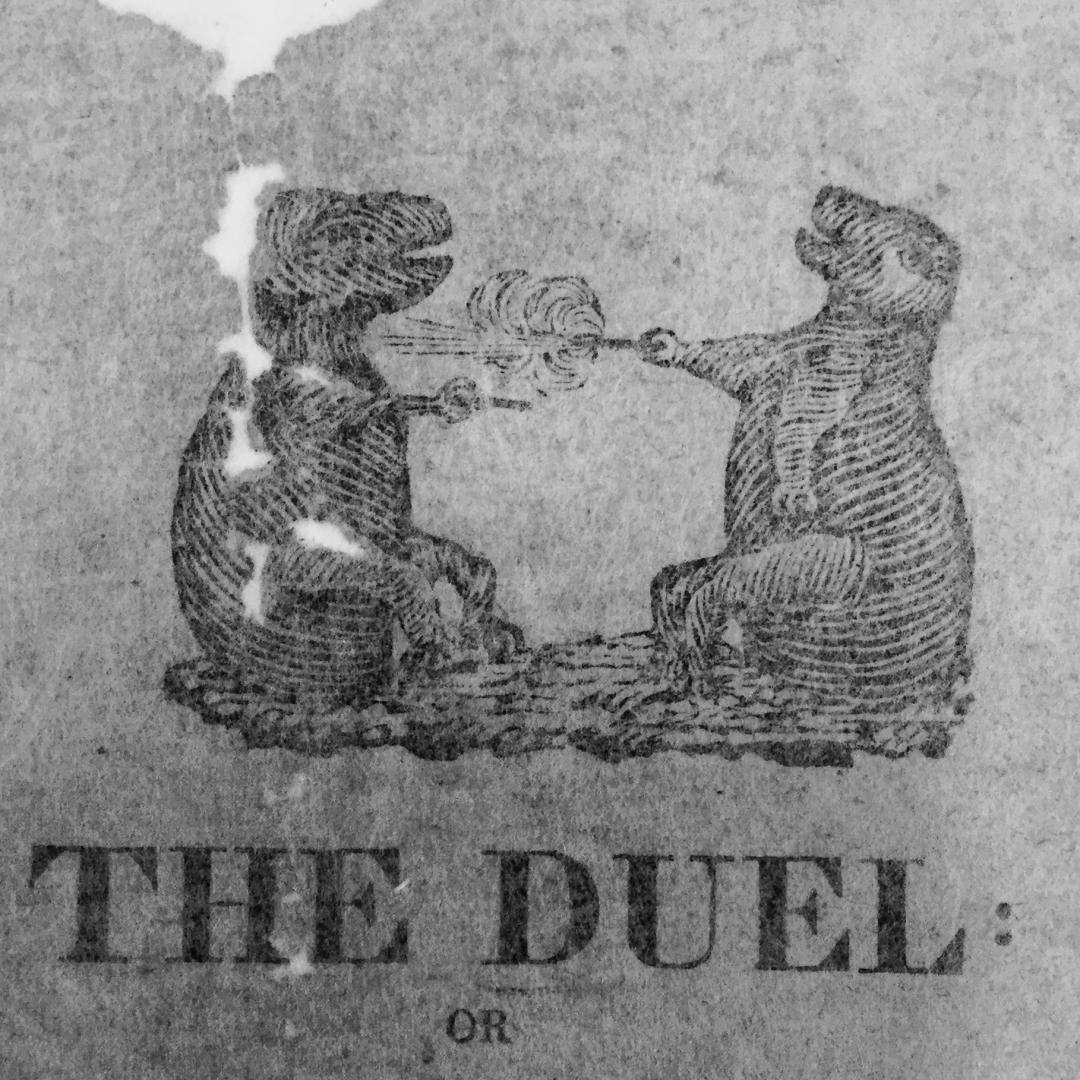- Trial Court Law Libraries
July 11 marks the 212th anniversary of the duel in Weehawken, New Jersey, between Alexander Hamilton and Aaron Burr that took Hamilton’s life.
In the eighteenth century, the Irish Code Duello was adopted as a set of guidelines that were known and used in America as well. Hamilton Cochran enumerated the Rules of Dueling in his book American Duels and Hostile Encounters (Chilton Books, 1963). Hamilton and Burr followed rituals associated with settling a dispute involving defense of their honor.
Dueling was illegal. Aaron Burr was charged with Hamilton’s murder in both New Jersey and New York, but he was never punished for the deed. Hamilton’s death did not end dueling in America. But horror in reaction to the Burr-Hamilton duel contributed to the end of the use of dueling as a way to resolve disputes.
On July 11, 2004, the 200th anniversary of the duel, the Weehawken Historical Commission staged a reenactment of the event. Descendants of Alexander Hamilton and Aaron Burr played the parts of their ancestors.
There could not be a more eloquent argument against the practice than that in Hamilton’s own son’s obituary published in the Nov. 24, 1801 New York Evening Post. Speaking of Philip Hamilton’s death in a duel, “Reflections on this horrid custom must occur to every man of humanity; but the voice of an individual or of the press must be ineffectual without additional, strong and pointed legislative interference. Fashion has placed it upon a footing which nothing short of this can control.”
The law can reflect our values and/or work to control our basest instincts. Massachusetts law formerly addressed dueling, even in the event that there was no death. ” Whoever engages in a duel with a deadly weapon, although no homicide ensued, or challenges another to fight such duel, or sends or delivers a written or verbal message purporting or intended to be such challenge, although no duel ensued, shall be punished by imprisonment in the state prison for not more than twenty years or by a fine of not more than one thousand dollars and imprisonment in jail for not more than three years; and shall be incapable of holding or of being elected or appointed to any place of honor, profit or trust under the constitution or laws of this commonwealth for twenty years after such conviction.” – R.S. 1902, c. 207, § 6, a law that dates back in some form to 1719.
In Massachusetts today, dueling that results in another’s death would be considered murder as defined in the General Laws, in Chapter 265, “Crimes Against the Person“, section 1. There are Massachusetts criminal laws still on the books that deal with dueling in another state in M.G.L. c. 265, § 3, § 4, and § 5. Several other sections of “Crimes Against the Person” formerly about dueling were repealed as “Obsolete Provisions of the Law” in St.1962, c. 285, § 2.
from American Antiquarian Society’s Amy Tims’ #Hamildays

